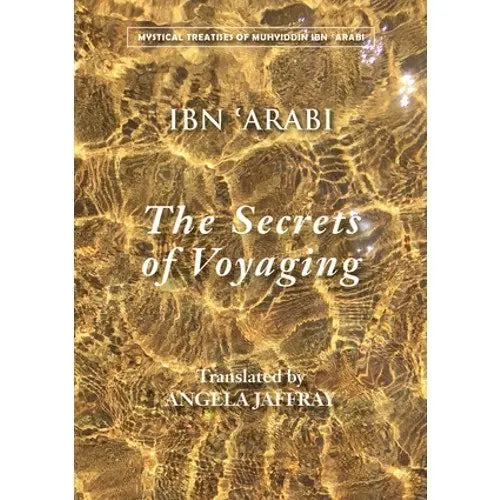About The Book
Ibn 'Arabi is one of the greatest writers of mystical literature of any era. The voyages recounted in the enigmatic Secrets of Voyaging offer readers an inexhaustible source of reflection on the nature of the journeys of life.
This unique book explores the theme of voyage and spiritual unveiling as it plays out simultaneously in the cosmological, scriptural, and mystical domains. This first English translation includes the Arabic text, based on a manuscript in Ibn 'Arabi's own hand and is accompanied by the translator's introduction and extensive notes and commentary.
About The Author
Mystic, philosopher, poet, sage, Muhammad b. Ali Muhyiddin Ibn 'Arabi is one of the world's great spiritual teachers. Known as Muhyiddin (the Revivifier of Religion) and the Shaykh al-Akbar (the Greatest Master), he was born in 560 AH (1165 AD) into the Moorish culture of Andalusian Spain, the centre of an extraordinary flourishing and cross-fertilization of Jewish, Christian and Islamic thought, through which the major scientific and philosophical works of antiquity were transmitted to Northern Europe. Ibn 'Arabi's spiritual attainments were evident from an early age, and he was renowned for his great visionary capacity as well as being a superlative teacher. He travelled extensively in the Islamic world and died in Damascus in 1240 AD.
He wrote over 350 works including the Fusûs al-Hikam, an exposition of the inner meaning of the wisdom of the prophets in the Judaic/ Christian/ Islamic line, and the Futûhât al-Makkiyya, a vast encyclopaedia of spiritual knowledge which unites and distinguishes the three strands of tradition, reason and mystical insight. In his Diwân and Tarjumân al-Ashwâq he also wrote some of the finest poetry in the Arabic language. These extensive writings provide a beautiful exposition of the Unity of Being, the single and indivisible reality which simultaneously transcends and is manifested in all the images of the world. Ibn 'Arabi shows how Man, in perfection, is the complete image of this reality and how those who truly know their essential self, know God.
Firmly rooted in the Quran, his work is universal, accepting that each person has a unique path to the truth, which unites all paths in itself. He has profoundly influenced the development of Islam since his time, as well as significant aspects of the philosophy and literature of the West. His wisdom has much to offer us in the modern world in terms of understanding what it means to be human.
show more

